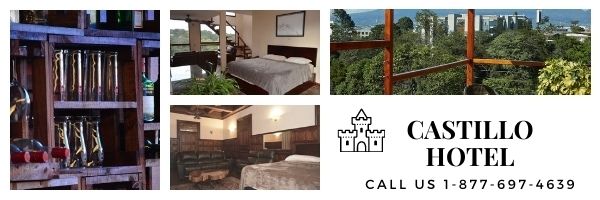PacoLoco wrote:
Does anyone have comment or current info on the monetary policy with the colone, the decision to let it float and the impact this will have on real estate values? I've heard this situation has caused big investors to back off in fear of the colone making a rapid drop of possibly 10-15% or more, (maybe in one day). I'm assuming this could happen if/when they let the colone "loose to face market forces."
Paco,
Don't know if you've seen this yet, but the below article talks about this situation. It's in today's (Friday - 10/13)
Tico Times:
Exchange Rate Uncertainty Looms
By Blake Schmidt, Tico Times Staff
bschmidt@ticotimes.net
Any day now, the government will implement a new exchange rate regime intended to liberalize Costa Rica's devaluating currency.
The change will have widespread, large-scale effects throughout the economy, and is intended to give the Central Bank the muscle of monetary reform needed to rein in Costa Rica's runaway inflation.
Between now and the end of the year, Costa Rica will open its 22-year-old system of mini-devaluations to a world of uncertainty. As the colón is allowed to fluctuate more freely against the dollar, consumers and financial markets will have to adapt to a regime in which the Central Bank will no longer adjust the exchange rate with predictable daily increments of approximately 13 céntimos (hundredths of a colón).
But the Central Bank won't send Costa Rica's colón pedaling off into the volatile world of supply and demand without training wheels. The colón will be allowed to fluctuate within a currency band, or a price ceiling and floor, set and maintained by the Central Bank.
Citing fears of possible last-minute speculations, Central Bank president Francisco de Paula Gutiérrez has been tight-lipped about exactly when the change will be made. He has refused to announce a date for the change, though he has said it will occur before year's end. Consumers will be informed of the change the very day it takes place, he said.
Gutiérrez told The Tico Times that just about everything is in place for the currency band system to be put into affect.
Under the new system, the Central Bank will use the $2.6 billion it has in reserves to buy and sell dollars to banks in order to keep the exchange rate floating inside the currency band.
The change is the first step in the Central Bank's long-term goal to liberalize the colón completely and free it from the U.S. dollar – to which it has been nearly fixed with a “crawling peg†system since 1984.
Liberalization of the colón is part of a larger plan to control Costa Rica's high inflation rate, which crept above an accumulated 14% the end of last year and is expected to reach 11% this year, according to Gutiérrez.
Former Central Bank president Eduardo Lizano explained “the essential change is that risks that the Central Bank took on will be passed on to economic agents.â€
Known as a “crawling band†in economic argon, the new system will mean changes for institutions, consumers and the economy as a whole.
For the financial sector, banks will have to advertise and compete among each other to offer consumers the best exchange rate, and develop insurance to cover the risks of the new exchange rate system.
For consumers and investors, it will mean having to seek out the best exchange rate the market will offer them and having to adjust to a new system that allows for more uncertainty than the current mini-devaluation system.
For the Central Bank, it will mean having more tools with which to control the country's high inflation, which Gutiérrez called “one of Costa Rica's biggest problems.â€
Speculation already exists as to whether the new system could halt the current trend of dollarization in the economy, but one thing is for sure: it will open the economy to the risks of speculation and the volatility of supply and demand.
Also, the Central Bank's ability to control inflation will largely depend on whether Costa Rica's Legislative Assembly can pass the fiscal reforms necessary to help pay down the Central Bank's debt, thus making sure it has the resources with which to implement its monetary policy.
It is unknown as of yet what the width of the currency band will be, although Central Bank economist Eduardo Méndez said it will be “narrow†– between 3-4% of the colón's value.
The currency band's floor and ceiling levels will be maintained by the Central Bank in accordance with a “crawling band†model. That means the floor and ceiling will slowly grow apart, making the band wider and wider, thus giving the colón more and more room to float.
Too Much Certainty?
Under the near-perfect certainty of the current system, the Central Bank makes daily adjustments to keep the exchange rate within a very small band, Gutiérrez explained. The Central Bank is constantly devaluating the colón by small fractions, so people know their dollars will continue to appreciate against the colón, Gutiérrez explained.
More people put dollars into banks, and invest in dollars, because over time those dollars will have increased in value in Costa Rican terms, Gutiérrez said.
“There's too much certainty,†he said. The new system will bring uncertainty to the equation. People are already speculating as to what that uncertainty could bring. Costa Rican Chamber of Exporters (CADEXCO) president Mónica Araya said exporters are worried about taking on the increased risks.
“There are no insurance services yet to cover risks. So there are no instruments to minimize risks. But there will be. Then we'll have to pay insurance,†she said.
Araya said the booming $7 billion export industry – which Costa Rican President Oscar Arias hopes to make an $18 billion industry by the end of his term – fears that the colón will appreciate under the new system. If that happens, the demand for imports would rise and the demand for exports would drop.
“It all depends on how the Central Bank handles the bands,†she said.
Costa-Rican American Chamber of Commerce (AmCham) president Hernán Pacheco said he has heard a lot of speculation in anticipation of the new system, but that the general feeling in Costa Rican business circles is that the new sysem is “favorable.â€
Some, including Gutiérrez, say the uncertainty will make it less likely that people will keep putting dollars into Costa Rica's highly dollarized economy. More than half of the liquid economy is in dollars, Gutiérrez said.
Under the new system, people will not know what the colón will be worth against the dollar in the future. Gutiérrez said that might mean people will be less likely to pour dollars into the economy.
However, José Luis Arce, an economist for the private San José economic consulting firm Consejeros Económicos y Financieros, S.A., said he doubts a currency band will deter people from using dollars.
“The process of dollarization is generally irreversible. Once people have lost faith in the local currency, it's difficult to recuperate it,†he said.
However, Lizano says the fate of the dollar in the economy will depend less on people's faith in the local currency, and more on people's faith in the new currency band system.
“It depends on the economic agents' confidence in the system. They'll keep their dollars if there is no confidence in the colón. Without any confidence, in fact, the economy could become even more dollarized,†he said. For people to trust in the system, he said, the Central Bank will have to implement a cautious, transparent system.
Lizano, who was Central Bank president from 1984-1990 and again from 1998-2002, was against liberalizing the colón during his two terms.
But Lizano and Gutiérrez agree things have changed – a steady flow of direct foreign investment, a growing economy, and the Central Bank's finances make for different economic circumstances than when Lizano was in office.
The Central Bank's deficit is the smallest it has been in years. The bank has $4.6 billion in liabilities, but is sitting on $2.6 billion in reserves it will be able to use to control exchange rate fluctuations.
Gutiérrez says the time is now.
The change will include renovation of the Central Bank's online exchange rate price negotiation platform. Under the new system, called MONEX, all banks will post their prices on the Web at the Central Bank's site, where consumers will be able to open a Web page with a list of the exchange rates each bank is offering. The Central Bank has already begun posting the exchange rate on its site
www.bccr.fi.cr/flat/bccr_flat.htm
Under the current system, each bank advertises the rate on its own Web site. Under the new system, the Central Bank will announce each day the exchange rate price floor and ceiling. Gutiérrez said the currency band will be narrow at first, between 3-4% of the currency's value (about ¢20) but grow wider in time.
“We have to permit that all prices – including the price of the exchange rate – reflect market circumstances, not the dirigismo of a few bureaucrats,†Juan Ricardo Fernández, president Association of Free Consumers, told The Tico Times.
The last time the exchange rate regime was changed was in the wake of Costa Rica's economic crisis in the 1980s. At the end of 1980, the Central Bank abandoned the official exchange rate and floated the colón. It was the first change in the official rate of the colón to the dollar since 1968, when the colón was pegged at ¢8.60.
Then in 1981, as Central America slipped into economic crisis, the colón collapsed. The national currency was officially devalued by the Legislative Assembly amid hyperinflation (TT, Dec. 4, 1981).
Once the colón stabilized, in 1984, on the coattails of the crises, the current mini-devaluation system was established. Gutiérrez said that regime hasn't allowed the Central Bank to control inflation.
He said the country is trying to achieve the “impossible trinity,†referring to a theory in international economics that suggests the following three things cannot be maintained: free capital movement, a fixed exchange rate, and control over monetary policy.
He said making the exchange rate more flexible is the best way to break the trinity, as Chile, Colombia, Israel and Mexico have done in the past with “excellent results.†However, for the Central Bank to control inflation in the long run, it depends upon the government's ability to pass fiscal reform, which would reduce the Central Bank's $2 billion deficit, Gutiérrez said.










